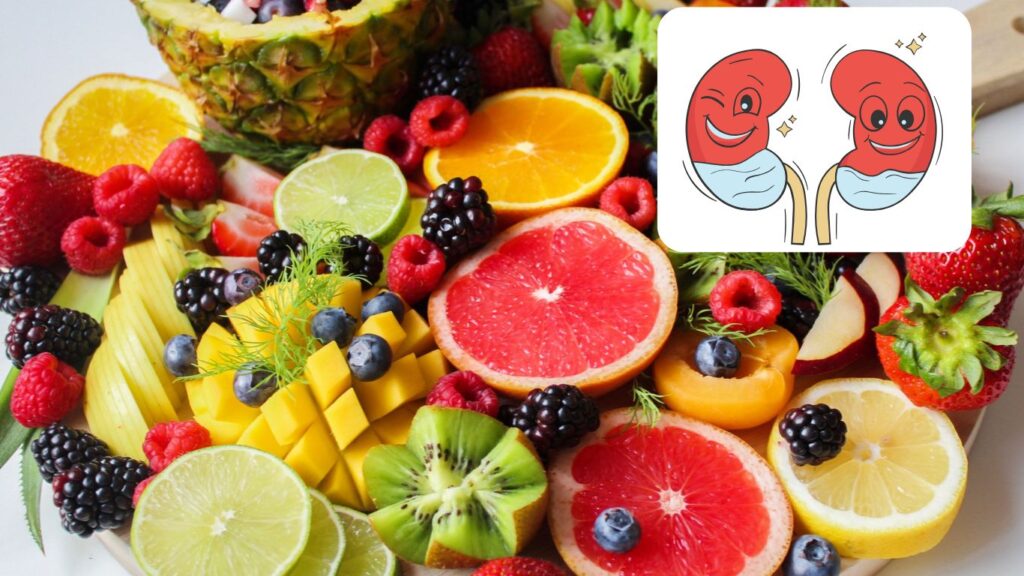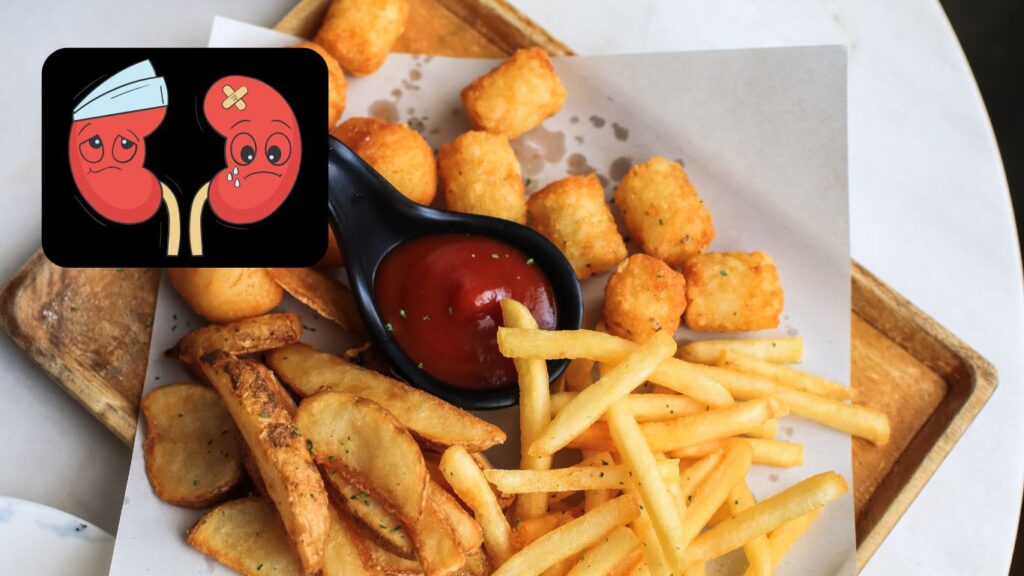Kidney stones are solid deposits of minerals and salts that form in the kidneys. They can cause severe pain and discomfort, and if left untreated, they may lead to complications. While medical treatments are often necessary, diet plays a crucial role in managing and preventing kidney stones. In this blog, we’ll explore the foods you should eat and avoid if you have kidney stones, along with helpful dietary tips to reduce the risk of stone formation.
Foods to Eat and Avoid If You Have Kidney Stones
Types of Kidney Stones and Their Dietary Connection
Before diving into specific foods, it’s essential to understand that not all kidney stones are the same. There are four main types:
- Calcium Oxalate Stones: The most common type. Formed when calcium combines with oxalate in the urine.
- Calcium Phosphate Stones: Often related to metabolic conditions or high urinary pH.
- Uric Acid Stones: Form when urine is too acidic. Common in people with high-protein diets.
- Struvite Stones: Associated with urinary tract infections.
Your diet can either help dissolve or contribute to the formation of these stones, depending on their type. Let’s take a closer look at what foods you should eat and avoid.
Foods to Eat If You Have Kidney Stones

- Water and Hydrating Fluids
- Why: Drinking plenty of water is the most important step in preventing kidney stones. It helps dilute the substances that form stones and ensures they are flushed out before they can crystalize.
- Tip: Aim for at least 8-10 glasses of water a day. Adding lemon to your water can be beneficial as it contains citrate, which helps prevent stone formation.
- Citrus Fruits
- Why: Citrus fruits like lemons, oranges, and grapefruits are rich in citrate, a compound that can prevent calcium stones from forming.
- Recommended Options: Fresh lemons, limes, oranges, grapefruits, and their juices.
- Low-Oxalate Vegetables
- Why: If you have calcium oxalate stones, it’s advisable to limit oxalate intake. Opt for low-oxalate vegetables that can provide necessary nutrients without increasing stone risk.
- Recommended Options: Kale, cauliflower, peas, and cucumbers.
- Calcium-Rich Foods (In Moderation)
- Why: Contrary to popular belief, calcium-rich foods can help prevent calcium oxalate stones by binding with oxalate in the gut before it reaches the kidneys. However, avoid taking calcium supplements without a doctor’s advice.
- Recommended Options: Milk, yogurt, cheese, and leafy greens (in moderation).
- Whole Grains
- Why: Whole grains are a great source of fiber, which can help reduce the amount of calcium, oxalate, and other stone-forming substances absorbed by the body.
- Recommended Options: Brown rice, oats, quinoa, and whole wheat bread.
- Plant-Based Proteins
- Why: People prone to uric acid stones should limit animal proteins. Plant-based proteins are easier on the kidneys and don’t increase uric acid levels.
- Recommended Options: Lentils, beans, chickpeas, and tofu.
Foods to Avoid If You Have Kidney Stones

- High-Oxalate Foods
- Why: Oxalate binds with calcium to form calcium oxalate stones. If you are prone to these types of stones, you should avoid foods high in oxalate.
- Foods to Limit: Spinach, rhubarb, beets, nuts, chocolate, and sweet potatoes.
- Excessive Sodium (Salt)
- Why: A high-sodium diet can increase calcium in the urine, which can lead to stone formation. Reducing salt intake can help lower this risk.
- Foods to Limit: Processed foods, canned soups, chips, salted snacks, and fast food. Aim for less than 2,300 mg of sodium per day.
- Sugary Drinks and Foods
- Why: Sugary drinks, especially those with high fructose content, can increase the risk of both calcium oxalate and uric acid stones. It’s best to limit or avoid sodas, energy drinks, and sugary snacks.
- Foods to Limit: Soft drinks, energy drinks, cakes, pastries, and candies.
- Animal Proteins
- Why: High consumption of red meat, poultry, and fish can increase uric acid levels, leading to uric acid stones. Limit your intake of these foods, especially if you have a history of uric acid stones.
- Foods to Limit: Beef, pork, lamb, chicken, turkey, eggs, and shellfish.
- Oxalate-Rich Nuts and Seeds
- Why: Nuts and seeds contain oxalate, which can contribute to stone formation. If you’re prone to calcium oxalate stones, it’s best to limit these foods.
- Foods to Limit: Almonds, cashews, peanuts, and sesame seeds.
General Dietary Tips for Kidney Stone Prevention

- Balance Calcium Intake
- Get your calcium from food rather than supplements, as the latter can increase the risk of stones. Pair calcium-rich foods with low-oxalate vegetables during meals.
- Limit Oxalate-Rich Foods
- While you don’t have to avoid oxalate completely, moderate your intake. Combine oxalate-rich foods with calcium sources, as calcium can bind to oxalate in the gut, preventing it from reaching the kidneys.
- Watch Your Portion Sizes
- Eating large portions of certain foods can increase your risk of kidney stones. Keep portion sizes moderate, especially when it comes to animal proteins and salty snacks.
- Stay Hydrated
- Drinking water throughout the day helps keep urine diluted, reducing the risk of stone formation. Aim to drink enough water to produce at least 2 liters of urine daily.
Conclusion
Managing your diet is one of the most effective ways to prevent kidney stones and reduce the risk of recurrence. Incorporate plenty of water, citrus fruits, whole grains, and plant-based proteins into your meals, while limiting high-oxalate foods, sodium, animal proteins, and sugary snacks. If you’re prone to kidney stones or have a history of them, it’s best to consult with a healthcare professional or dietitian who can help create a meal plan tailored to your specific needs. By making smart dietary choices and staying hydrated, you can significantly lower your risk of kidney stones and maintain overall kidney health.
Also read: The Role of Hydration in Preventing Kidney Stones: How Much Water Is Enough?
